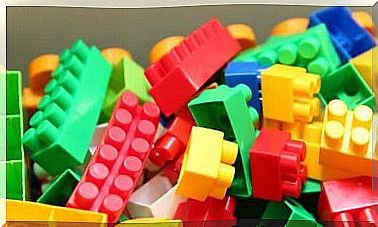How To Help A Child With A Learning Disability Understand Reading

Reading is not always the “strength” of children, but it is very important for learning. The little ones need to read and understand what is in front of them so that they can advance in their daily learning. Reading is knowing, and that brings us knowledge. Therefore, it is essential to help children with learning difficulties to understand reading.
For many parents, this task is far from easy, but it is not impossible. It is necessary to know how to help so that, little by little, children can read well and understand what they are reading, even if they have some learning difficulty. First, parents need to keep in mind that they must respect the pace and abilities of their children, as this is the only way to move forward correctly.

Ask questions to help understand reading
When a child is reading, he needs to be asked what is being read. In this way, you will be testing your understanding of the reading and its content. You can even ask a few questions in writing as this will also enhance her reading comprehension and she will be able to think through the answer better.
That way, by asking in writing, you can divert your child’s attention and he can think about the answer better without feeling the burden of responding quickly. Respect your time and remember that if he doesn’t know how to answer a question, just go back to the related part of the reading so that he remembers and can better internalize the information.
scents to remember
When your child is studying or reading content that needs to be remembered for an exam, make it interesting. You can use a scent while your child reads or studies so that later, when he smells that particular scent, he remembers what he was studying or reading.
For many children, scents can help them remember a specific moment or memory. So while your child is studying for a particularly difficult or stressful test, ask him to use a certain scent, such as a specific lotion or perfume.
When the exam day arrives, ask him to use the same scent he used to study. This can help you remember the content.
the reading corner
It is important that your child does not feel that reading is an obligation, because then he will not want to read or will feel like an imposition. Nobody likes to be forced to do things and your child is no exception. In this sense, it is much more practical and useful for you to choose to motivate your child so that he/she feels that reading is a time of relaxation, personal growth and, above all, leisure.
For this, prepare a special corner at home where your child can sit quietly to read alone or with others. You can even make adaptations to make this your quiet study corner where no one will bother you.
A table, pillows on the floor, a comfortable chair, books on the shelves, enough natural and artificial light to make reading comfortable… Think about how to organize this space so that your child can use it often.
writing book reports
Writing book reports can be challenging, especially for children with special needs or a learning disability. This strategy can help your child feel dominated by a book by reminding them chapter by chapter.
Ideally, you have several sheets of lined paper stapled together to make a custom notebook, although you can also set aside a notebook that is just for book summaries or for jotting down what you learn.
Whenever your child finishes reading a chapter, ask her to write a sentence or two to describe what happened. Also ask him to read what he has written about previous chapters before starting a new one. This will help you remember what’s going on in the story.

When your child finishes the last chapter, ask her to write a few sentences that describe how the book ended. That way, at the end, he will have a complete summary to help him understand and remember everything that was read. He will feel very good because he will have remembered the reading and will be able to break down the information.
Talk to your child to help them understand reading
Talk to your child about the main problems that arise when he sits down to read. What does he find most difficult? What makes him distracted? How can he find ways to stop distractions?
Once you’ve brainstormed to make reading more productive, write a contract with your child to implement the agreed-upon strategies. So, every time a strategy is used successfully, give him points so he can get a reward.
In short, we hope that these ideas for helping children with learning disabilities understand reading will be useful to you and that you can put them into practice at home with your children.









